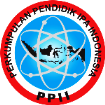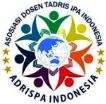Islamic Science Camp: Program Pembelajaran IPA yang Menyenangkan dengan Konsep Islami dan Kecintaan pada Alam
Abstract
This study aims to reveal how the concept of learning program design at the Islamic Science Camp (ISC), as well as to show the impressions of children and parents on the various ISC activities. This research consists of three stages, namely define, design and development. The trial subjects came from 11 elementary school (Islamic) institutions consisting of 28 students. The data were collected using (1) observation checklists; (2) documentation; (3) field notes sheets; and (4) impression sheets. Data analysis used tabulation techniques, narrative descriptions, and word cloud analysis. The science topics tested were related to (1) changes in the form of substances; (2) the concept of force and pressure; (3) matter and its classification; (4) the concept of energy; (5) aquatic ecosystems; and (6) plant morphology. Islamic values are emphasized in directing children's habituation activities, as well as providing children's motivation through Islamic figures in the fields of science and technology. Science projects include (1) a rotary ice cream making project; (2) launching a water rocket project; (3) making air freshener; (4) studying Islamic science; (5) building a ship and launching it; (6) river tracing and fishing; (7) making key chains from resin; and (8) making ecoprinting using pounding technique. Various positive impressions were obtained from the children and parents involved, and on the sustainability aspect, it was shown that there were repetitions and follow-up experiments by children outside the ISC program.
Keywords: islamic science camp, science learning, love of nature, islamic science concept.
ABSTRAK
Kajian ini bertujuan untuk mengungkap bagaimana konsep desain program pembelajaran pada Islamic Science Camp (ISC), serta menunjukkan kesan anak dan orang tua pada ragam akivitas ISC. Riset ini terdiri dari tiga tahapan yaitu define, design, dan development. Subyek uji coba berasal dari 11 instansi SD/MI yang terdiri dari 28 siswa. Pengumpulan data menggunakan (1) daftar cek observasi, (2) dokumentasi, (3) lembar catatan lapangan, dan (4) lembar kesan. Analisis data menggunakan teknik tabulasi, deskripsi naratif, serta word cloud analyisis. Topik IPA yang diujicobakan berkaitan dengan (1) perubahan wujud zat; (2) konsep gaya dan tekanan; (3) materi dan klasifikasinya; (4) konsep energy; (5) ekosistem perairan; dan (6) morfologi tumbuhan. Nilai-nilai Islam ditekankan pada pengarahan kegiatan habituasi anak, serta pemberian motivasi anak melaui tokoh-tokoh Islam bidang sains dan teknologi. Proyek sains mencakup (1) proyek pembuatan es krim putar; (2) proyek meluncurkan roket air; (3) pembuatan pengharum ruangan; (4) kajian sains islami; (5) proyek pembuatan kapal dan meluncurkannya; (6) susur sungai dan tangkap ikan; (7) pembuatan gantungan kunci dari resin; dan (8) pembuatan ecoprinting dengan teknik pounding. Beragam kesan positif diperoleh dari anak dan orang tua yang terlibat, serta pada aspek keberlanjutan ditunjukkan adanya repetisi dan eksperimen lanjutan oleh anak di luar program ISC.
Kata kunci: Islamic Science Camp, pembelajaran IPA, cinta alam, konsep islami sains.
Full Text:
PDFReferences
Adu, P. (2019). Using QDA Miner Lite to analyze qualitative data. In P. Adu (Ed.), A Step-by-Step Guide to Qualitative Data Coding. Routledge. Retrieved from https://doi.org/10.4324/9781351044516-10
Amril, A. (2018). Nilainisasi Pembelajaran Sains (Upaya Pembelajaran Integrasi-Interkoneksi Agama Dan Sains). Journal of Natural Science and Integration, 1(2), 133–144.
Anita, A. (2013). Penerapan Pendekatan Konstruktivisme Untuk Meningkatkan Hasil Belajar Siswa Pada Pembelajaran IPA Materi Gaya (Penelitian Tindakan Kelas Di Kelas V Sd Negeri Bukanagara Lembang Semester II Tahun Ajaran 2012/ 2013). repository.upi.edu. Universitas Pendidikan Indonesia.
Arianti, Y., & Aminatun, T. (2019). An analysis of outdoor learning towards students’ outcomes in learning biology. Journal of Physics: Conference Series, 1241(1). Retrieved from https://doi.org/10.1088/1742-6596/1241/1/012061
Ash, D., & Wells, G. (2006). Dialogic Inquiry in Classroom and Museum. In N. C. Z. Bekerman, B. Burbles, & D. Silberman-Keller (Eds.), The Informal Education Reader (pp. 35–54). New York: Peter Lang.
Asoko, H. (2000). Learning to teach science in the primary school. In R. Millar, J. Leach, & J. Osborne (Eds.), Improving Science Education: The contribution of research (1st ed., pp. 79–92). Buckingham, Philadelphia, USA: Open University Press.
Badan Penelitian dan Pengembangan, K. P. dan K. (2013). Kompetensi Dasar Sekolah Menengah Pertama (SMP)/ Madrasah Tsanawiyah (MTs). Jakarta: Kementrian Pendidikan dan Kebudayaan.
Bamberger, Y., & Tal, T. (2008). Multiple outcomes of class visits to natural history museums: The students’ view. Journal of Science Education and Technology, 17(3), 274–284. Retrieved from https://doi.org/10.1007/s10956-008-9097-3
Barlia, L. (2008). Sains untuk anak: Hakikat pembelajaran sains untuk sekolah dasar. Cakrawala Pendidikan, XXVII(2), 11.
Behrendt, M., & Franklin, T. (2014). A Review of Research on School Field Trips and Their Value in Education, 3, 235–245. Retrieved from https://doi.org/10.12973/ijese.2014.213a
Cakiroglu, J. (2007). Effects of Hands- on Activity Enriched Instruction on Students ’ Achievement and Attitudes Towards, (April), 87–98.
Cassim, F. (2013). Hands On , Hearts On , Minds On : Design Thinking within an Education Context, 2, 190–202.
Chiappetta, E. L., & Koballa, T. R. (2010). Science Instruction in the Middle and Secondary Schools: Developing Fundamental Knowledge and Skills (7th ed.). United State of America: Pearson Education Inc.
Dillon, J., Rickinson, M., Teamey, K., Morris, M., Choi, M. Y., Sanders, D., & Benefield, P. (2016). The value of outdoor learning: Evidence from research in the UK and elsewhere. Towards a Convergence Between Science and Environmental Education: The Selected Works of Justin Dillon, (January), 179–185. Retrieved from https://doi.org/10.4324/9781315730486
Glaab, S., & Heyne, T. (2019). Focus wildlife park: Outdoor learning at workstations for primary school children. Applied Environmental Education and Communication, 1–14. Retrieved from https://doi.org/10.1080/1533015X.2018.1554461
Golshani, M. (1998). The Holy Qur’an and The Science of Nature. New York: Global Publications.
Golshani, M. (2004). Issues in Islam and Science. Tehran: Institute for Humanities and Cultural Studies.
Hofstein, A., & Rosenfeld, S. (1996). Bridging the gap between formal and informal science learning. Studies in Science Education, 28(1), 87–112. Retrieved from https://doi.org/10.1080/0305726960856008
Imaduddin, M. (2017). Mendesain Ulang Pembelajaran Sains Anak Usia Dini yang Konstriktif melalui STEAM Project-Based Learning yang Bernuansa Islami. In Proceeding AnCoMS 2017: 1st Annual Conference for Muslim Scholars (pp. 950–958). Surabaya: Kopertais Wilayah IV Surabaya.
Imaduddin, M. (2019). Infusing Islamic Values and Sustainable Development Into Chemistry for Pre-Service Islamic Elementary School Teachers. Jurnal Pendidikan Sains (Jps), 7(1), 47. Retrieved from https://doi.org/10.26714/jps.7.1.2019.47-54
Imaduddin, M. (2020). A New Way to Promote Islamization of Science: I-SETS Design for Pre-Service Science Teachers. Journal of Natural Science and Integration, 3(1), 1. Retrieved from https://doi.org/10.24014/jnsi.v3i1.8774
Imaduddin, M., & Khafidin, Z. (2018). Ayo Belajar IPA dari Ulama: Pembelajaran Berbasis Sosi-Scientific Issues di Abad ke-21. Thabiea: Journal of Natural Science Teaching, 01(02), 102–120.
Imaduddin, M., & Zuhaida, A. (2019). STREAMIN Model for the Next Generation of Science Education in Indonesia. In Journal of Physics: Conference Series (Vol. 1233). Retrieved from https://doi.org/10.1088/1742-6596/1233/1/012096
Inan, H. Z., & Inan, T. (2015). 3Hs Education : Examining hands-on , heads-on and hearts-on early childhood science education. International Journal of Science Education, (July 2015). Retrieved from https://doi.org/10.1080/09500693.2015.1060369
Karpudewan, M., Ismail, Z., & Mohamed, N. (2013). Pre-service teachers’ understanding and awareness of sustainable development concepts. Asia Pacific Journal of Educators and Education, 28, 117–130.
Martin, S. (2006). Where practice and theory intersect in the chemistry classroom: Using cogenerative dialogue to identify the critical point in science education. Cultural Studies of Science Education, 1(4), 693–720. Retrieved from https://doi.org/10.1007/s11422-006-9031-z
National Science Teachers Association. (2003). Standards for science teacher preparation.
Özgen, N. (2011). A different approach to physical geography teaching method: Trip-observation supported education. Marmara Journal of Geography, 23, 373–388.
Rahmawati, R. F., Imaduddin, M., Haqiqi, A. K., Fikri, A. A., Fawaida, U., Prasetyo, D. R., & Faikhamta, C. (2020). Assessing Psychosocial Outdoor Learning Environment of Pre-service Science Teachers through The Field Trip Experiences. Participatory Educational Research, 7(2), 135–150. Retrieved 31 May 2020 from https://doi.org/10.17275/per.20.24.7.2
Ramachandiran, M., & Dhanapal, S. (2016). Evaluation of the Effectiveness of Field Trips in the Teaching and Learning of Biosciences. In S. F. Tang & L. Logonnathan (Eds.), Assessment for Learning Within and Beyond the Classroom. Springer Science+Business Media Singapore. Retrieved from https://doi.org/10.1007/978-981-10-0908-2
Rickinson, M., Dillon, J., Teamey, K., Morris, M., Choi, M. Y., Sanders, D., & Benefield, P. (2004). A review of research on outdoor learning.
Taş, E. (2019). Analysis of the influence of outdoor education activities on seventh grade students. Participatory Educational Research (PER), 6(2), 122–143.
Tatar, N., & Bağriyanik, K. E. (2012). Opinions of Science and Technology Teachers about Outdoor Education Fen v e Teknoloji Dersi Öğretmenlerinin Okul DıĢı Eğitime Yönelik GörüĢleri. Elementary Education Online, 11(4), 883–896.
Thamrin, H. (2017). Rekontruksi Ecoreligius Orang Melayu Solusi Penyelamatan Lingkungan. Al-Fikra: Jurnal Ilmiah Keislaman, 16(1), 99–136.
The OECD Programme for International Student Assessment. (2019). PISA 2018 Results (Volume I). Retrieved from Paris:
Thiagarajan, S., Semmel, D. S., & Semmel, M. I. (1974). Instructional Development for Training Teachers of Exceptional Children. Minnesota: Leadership Training Institute/ Special Education, University of Minnesota.
Wardani, W., & Mulyani, M. (2013). Eko-Teologi Al-Qur`an: Sebuah Kajian Tafsir Al-Qur`an Dengan Pendekatan Tematik. Ilmu Ushuluddin, 12(2), 167–193. Retrieved from https://doi.org/10.18592/jiu.v12i2.532
Wisudawati, A. W., & Sulistyowati, E. (2014). Metodologi Pembelajaran IPA. Yogyakarta: Bumi Aksara.
Zidny, R., & Eilks, I. (2018). Indigenous knowledge as a socio-cultural context of science to promote transformative education for sustainable development : insights into a case study on the baduy community (indonesia). Building Bridges across Disciplines for Transformative Education and a Sustainable Future, (October), 249–256.
Zion, M., & Mendelovici, R. (2012). Moving from structured to open inquiry : Challenges and limits. Science Education International, 23(4), 383–399.
DOI: http://dx.doi.org/10.24014/jnsi.v4i1.11466
Refbacks
- There are currently no refbacks.

Journal of Natural Science and Integration
E-ISSN: 2620-5092 P-ISSN: 2620-4967
Published By:
Department of Science Education, Faculty of Education and Teacher Training,
State Islamic University of Sultan Syarif Kasim Riau, Indonesia
Mailing Address:
Jl. H.R Soebrantas Km. 15 No. 155
Kelurahan Simpang Baru
Kecamatan Tuah Madani, Pekanbaru, Riau, Indonesia
Email: jnsi.tadrisipa@uin-suska.ac.id
Indexed By:
Journal of Natural Science and Integration is licensed under a Creative Commons Attribution 4.0 International License.


_-_Copyy2.png)






.jpg)
.png)
.jpg)
.jpg)




